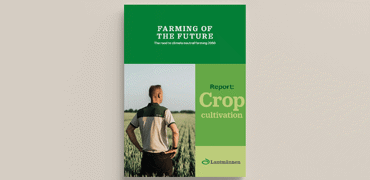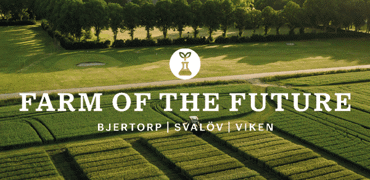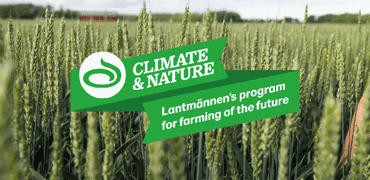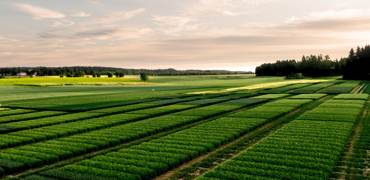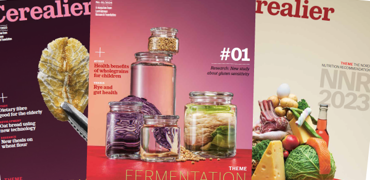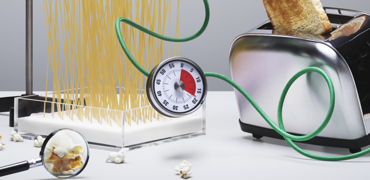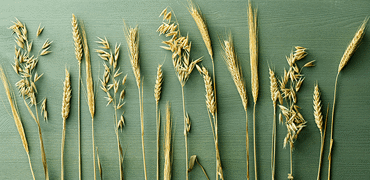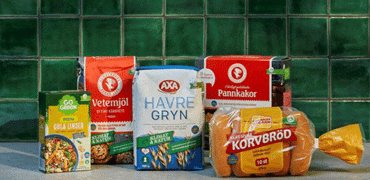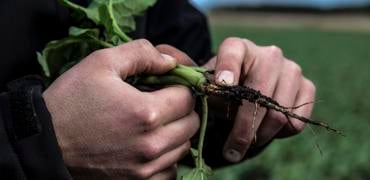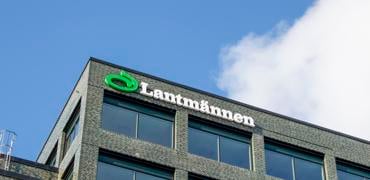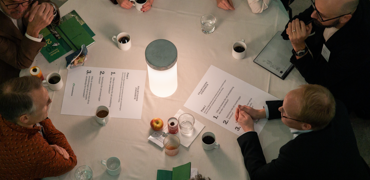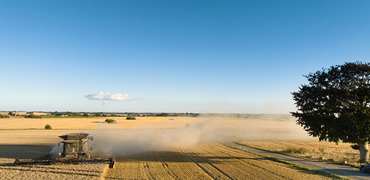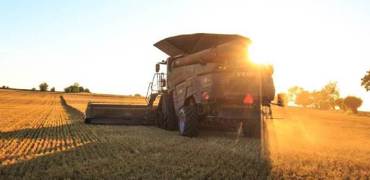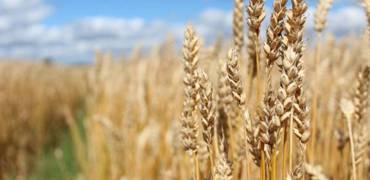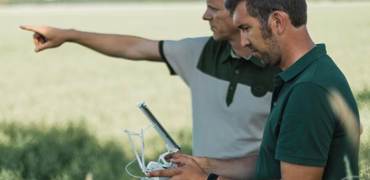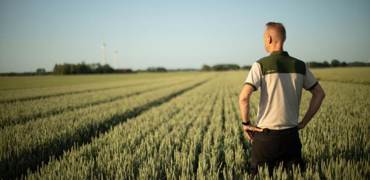Increased domestic production for a stronger food system
In this joint blog post, Lantmännen’s Director of Public and Regulatory Affairs, Alarik Sandrup, and Group Strategy Director, Patrik Myrelid, discuss the current world situation and the challenges and changes that Swedish food production is facing.
The Russian invasion of Ukraine is creating a humanitarian disaster with consequences for millions of people. The war is also having a far-reaching impact on Sweden’s and the world’s food system, something we at Lantmännen are actively analysing, planning and acting on.
Global perspective
When the war broke out in February, it came at a very critical time and in a very critical place. Ukraine, which is usually referred to as the breadbasket of Europe, was just about to start spring sowing. Farmers in Ukraine usually grow huge volumes of wheat, corn, sunflower and rapeseed, and this year’s very limited spring sowing will have an enormous impact on the international availability and trade of these products in the future. Food will become more expensive all over the world. The countries most dependent on imports are in the Middle East and Africa, where many people already live on low incomes, and the poorest in the world will be hit the hardest. The effects of food shortages in countries that already have poor populations could, in the worst case, be extensive and lead to social unrest and streams of refugees.
Europe
Europe is dependent on imported energy. Russia and Ukraine have supplied Europe with 20–40% of the natural gas, coal power and fuel it uses. In agriculture, the production of fertilisers in Europe is dependent on natural gas from Russia. Even before the Russian invasion, the price of inputs for agriculture was increasing more and more. We now see that the price of inputs has doubled since last year. This will have repercussions throughout the whole chain. In Europe and all over the world, we will see higher food prices well into the future. Europe and Sweden will need to invest more in agriculture, and create an agricultural policy that takes into account the changed situation and create the conditions for long-term investments and increased production.
The EU’s Common Agricultural Policy (CAP), where a new legal framework has been delayed, must now also consider the changed situation and ensure the right conditions for an increase in production while taking environmental and climate considerations into account. There should be an increased focus on creating more local value chains and making production more robust and less dependent on global value chains.
Sweden
The consequences of the ongoing crisis for Sweden are difficult to foresee and depend on future developments, but what we already know today is that the availability of fertiliser before sowing in the autumn of 2022 and in the spring of 2023 will be affected, which in turn will affect the harvest in 2023 and what is on our dinner tables in 2023 and 2024. The fertiliser to be spread in autumn must be produced now. Lantmännen’s business partner, Yara, has already been forced to close production periodically due to rising gas prices leading to unsustainable production costs. The increased production costs will gradually have an effect on the price of food on the shop shelves in the future. In Sweden, food will become more expensive and many companies, not least those within agriculture, already have and will face challenges in terms of shortages and the higher price of inputs.
Lantmännen is working for Farming of the Future
It is hard to see what developments lie ahead of us. At the time of writing, we do not know how long Russia’s war will last, when value chains can begin to be built up again, or what Russia’s position in the world will look like in the future. But what is most likely is that the price of inputs will continue to be high, and that the need to develop more robust, locally-based value chains will remain with us in the long term. We need to continue to work on making ourselves less dependent on imported energy, even within the transport sector.
In the long term, Lantmännen is striving for profitable and sustainable agriculture, and in the growing crisis situation we have a strong foundation to build on. An example is our investments in plant breeding, animal research, digitalisation, Tillväxtbolaget (Farmers Venture Capital), food exports and innovation.
For us at Lantmännen it is very much about strengthening the development that is already underway. We will invest more on energy-efficient and climate-friendly alternatives such as biofuels and green fertilizers. We are developing green proteins and more and more peas, beans and lentils, with a naturally lower need of plant nutrients, are being grown in crop rotation. In the future, we see the value chains becoming more local, more robust and more controllable. Investments in agriculture in Sweden and the Nordic region have to increase. Investments in research and the proper tax and regulatory conditions are required. Changes must take place in the entire value chain in order to strengthen a robust food sector.
If we succeed in turning the crisis into an appreciation of how important to society the food production sector is and improve the profitability of agriculture, we can emerge stronger after the crisis. This is based on farmers being better paid for their products and that policies are focussed on promoting agricultural and food production, both in Sweden and the EU. In the long run, recent developments can contribute to a changed view of agriculture and food production. Agricultural land can be valued as the important resource it is. The sector can attract talent and create green jobs.
The past three decades where the distance between primary production and consumption has increased ideologically and politically may become a parenthesis in history. We believe in a new attitude in the public debate where attention is paid to the value of increased domestic production. Rarely has Lantmännen’s work and strategy felt so meaningful.






